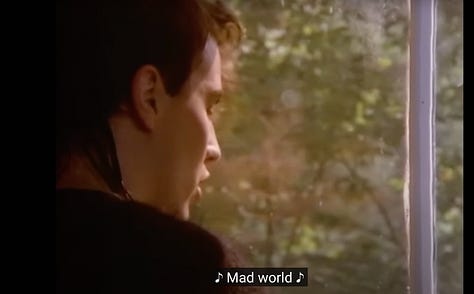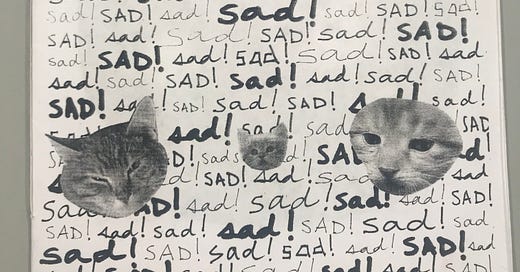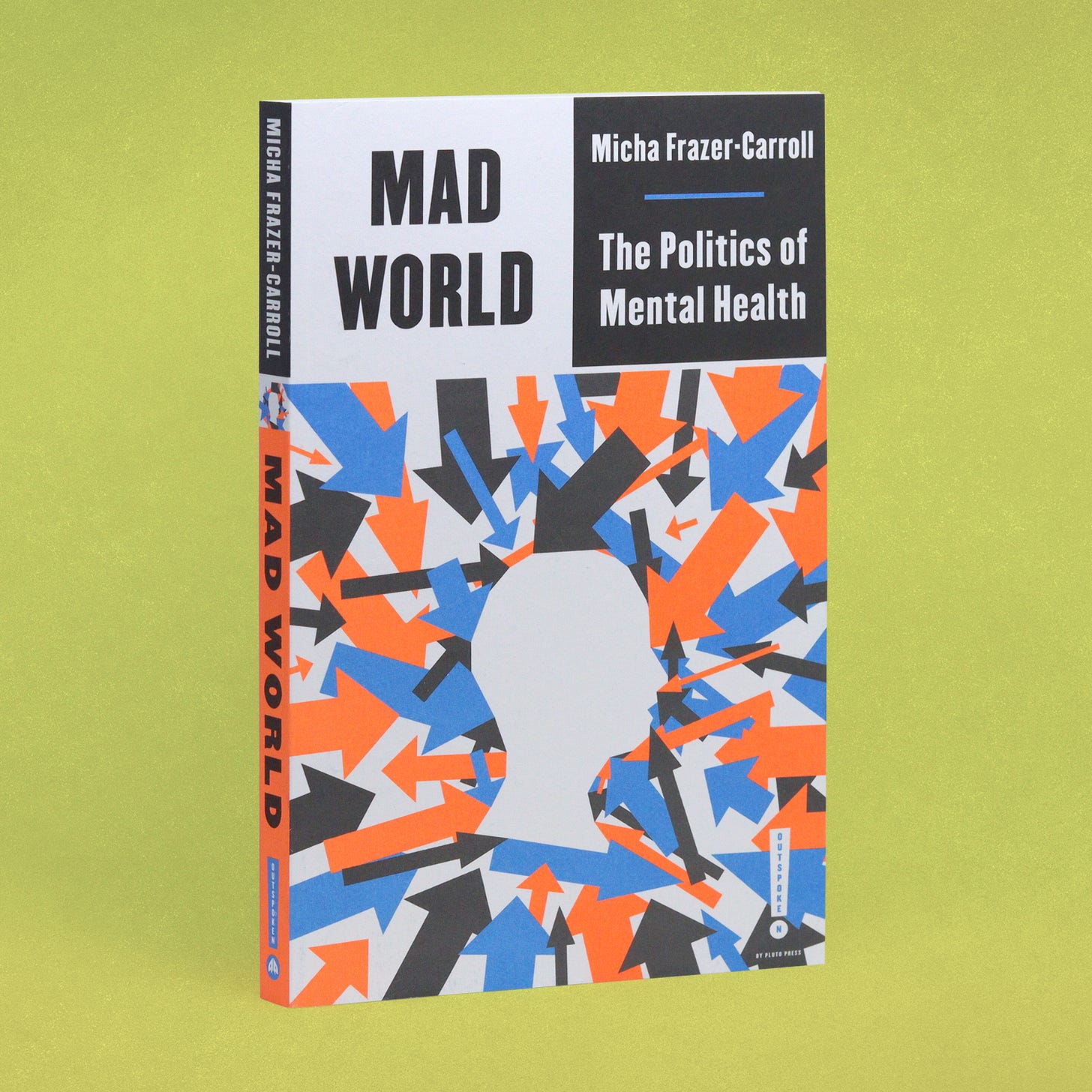Earlier this year I was asked by baddie Micha Frazer-Carroll to write a blurb for her upcoming book, Mad World. After rewatching the music video for the epic 1982 banger of the same name, I opened the PDF in the bath. Micha and I met through our work at gal-dem magazine (rip) and I was excited to see what she’s been up to. A few hours and some very shrivelled extremities later, I was warm with that giddy glow I get from literally nowhere other than radical mental health community.
Truth see-ers!!
Here’s what I wrote about it:
Wow! Thank you, Micha, for writing this honest, urgent and lovingly researched journey through the past, future and beyond of Mad Pride and alternative world-building. This book is an invaluable toolkit, not just for dismantling oppressive health structures, but for building the systems of care we desperately need. Refreshingly rooted in the disturbing history of the United Kingdom and crafted with so much care, Mad World is a much needed demand to consider the political, environmental and structural causes of Madness, and the ways community care can be utilized to support us all. This book welcomes you to rethink what you think you know about Madness. To stop thinking altogether, perhaps. To feel. Through her beautifully incisive critique of psychiatry, capitalism and self-care, Frazer-Carroll offers us a rare portal into the magic, mystery and misery of Madness. Mad World is a beautiful offering, proving what us Mad people already knew - that we're not the problem, it's the world that's sick.
This book is a gift and that gift is hope.






Anyway, get into this exclusive interview with Micha about her book-writing process, why you can’t talk about mental health without talking about capitalism, why England is so shit, and how we can still make time to dream of better days.
Keep reading with a 7-day free trial
Subscribe to off-grid baby to keep reading this post and get 7 days of free access to the full post archives.





